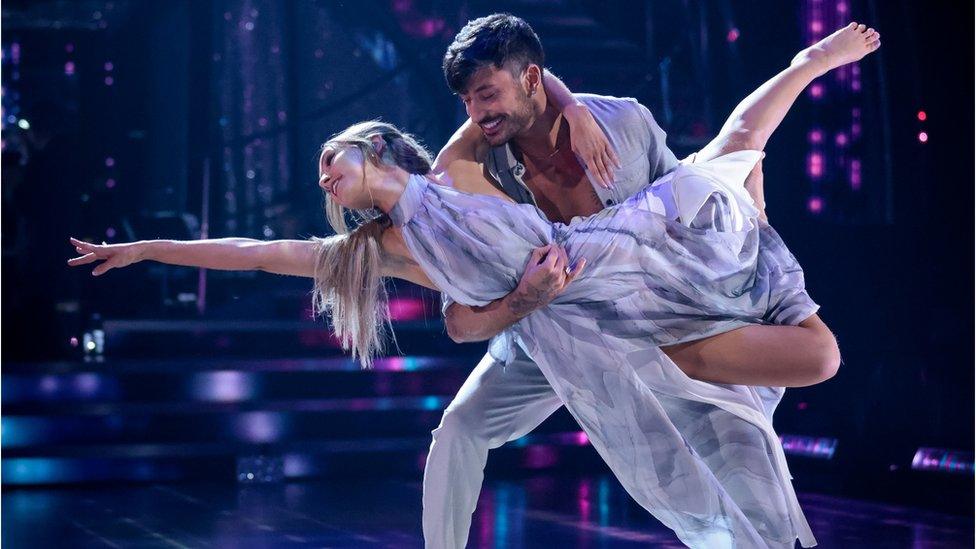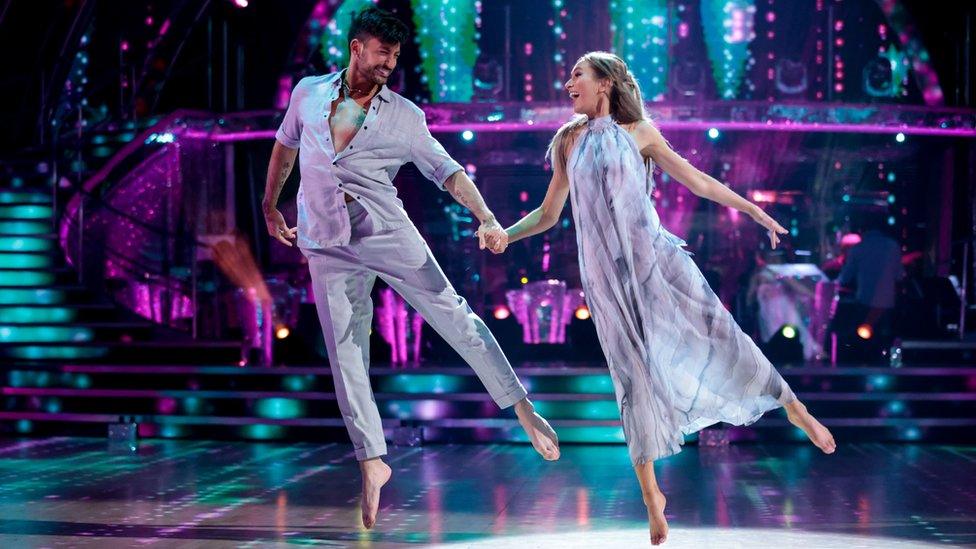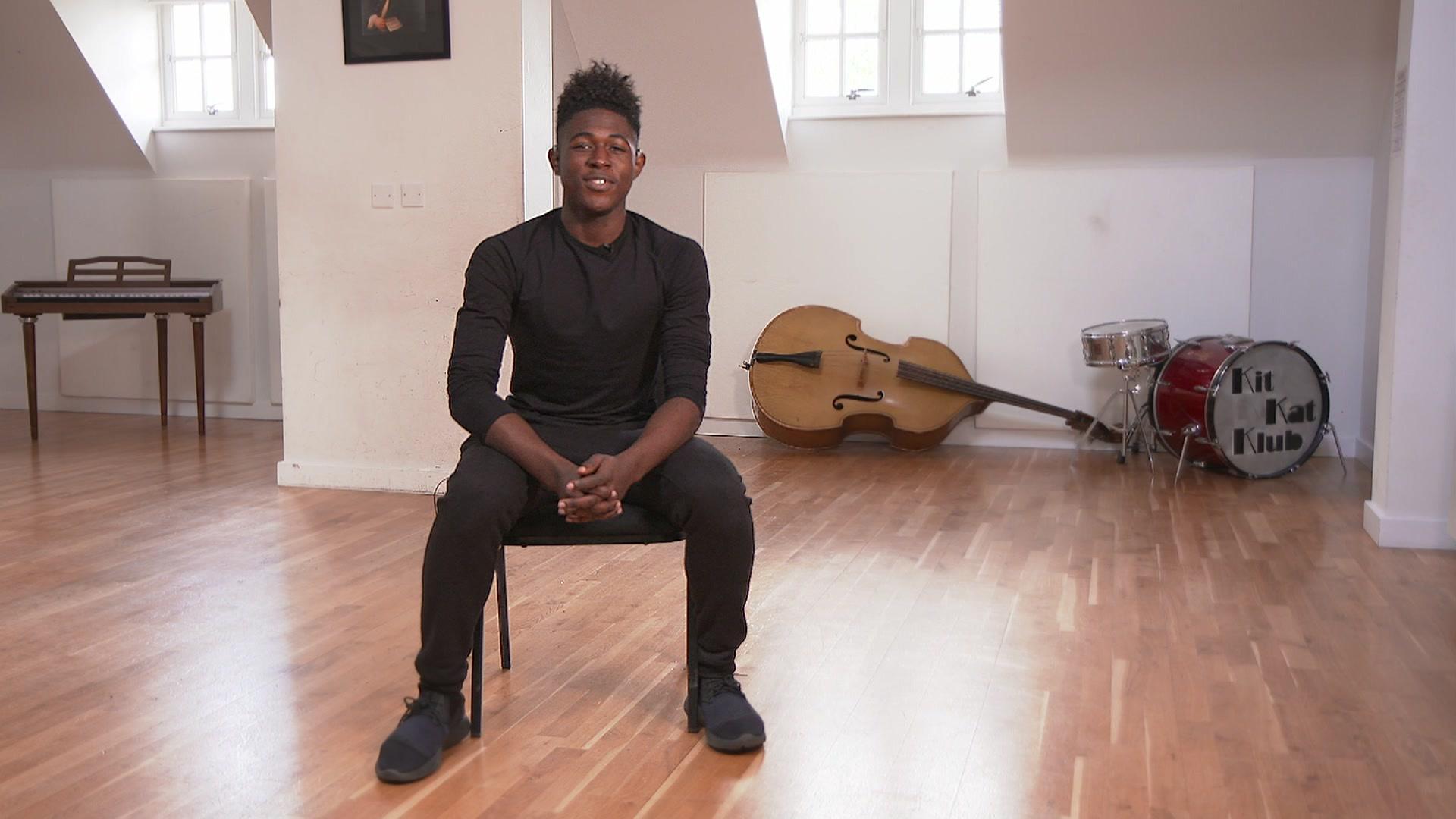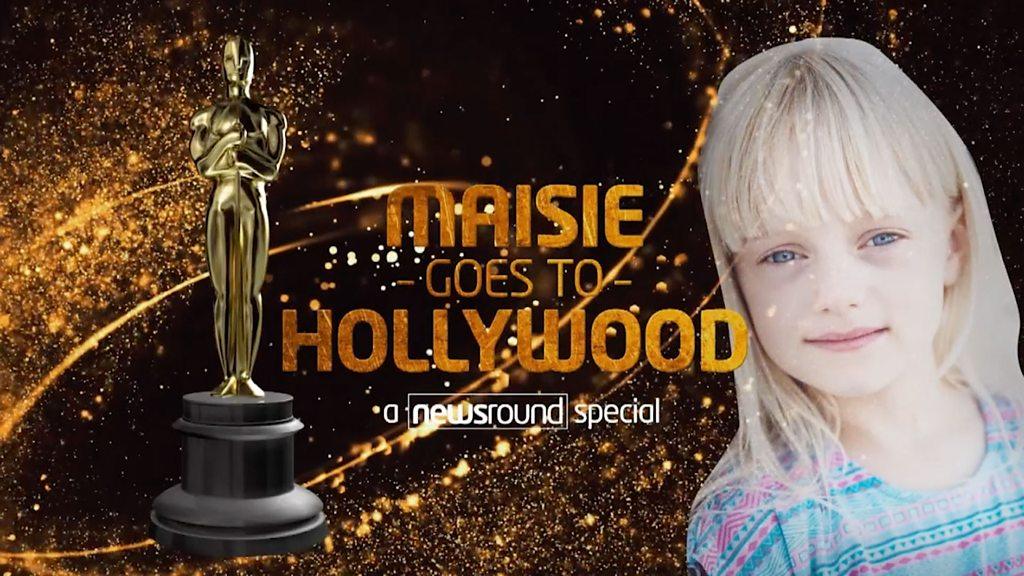Strictly 2021: Rose Ayling-Ellis celebrates being deaf with 'happy dance'
- Published
- comments

A charity that represents young deaf people has said Rose Ayling-Ellis' emotional performance on Saturday night's Strictly Come Dancing is inspiring deaf children and young people to aim high".
On Saturday night, the EastEnders actor and her dance partner Giovanni Pernice performed a contemporary dance to Symphony by Clean Bandit and Zara Larsson as their couple's choice.
In the middle of the dance the music paused and the couple continued the dance in silence as a tribute to the deaf community.
The performance, which scored 39 points out of a possible 40, was praised by the judges.
Motsi Mabuse said: "I honestly feel like saying thank you, because I think this was just such a beautiful moment to include us in your world. And for us to actually understand - how important."
Shirley Ballas stood 'out of respect' for her response, saying, 'I'm sure the Deaf community will be absolutely so proud of you, and for sharing your heart"
Anton Du Beke said their dance was the 'greatest thing' he'd ever seen in his many years on Strictly and Craig Revel Horwood said it was 'fabulous'.
After the dance Rose thanked Strictly professional dancer Giovanni Pernice saying: "I feel very thankful for your determination to make this dance the most positive, happy dance, it can be, because you know that being deaf, there's nothing wrong, it's such a joy to be deaf, and I think that says a lot about you as a person."
A 'role model' for deaf young people

Rose and Giovanni scored 39 points for their joyful routine
Rose is the first deaf contestant on Strictly and she has been praised for representing the deaf community.
One of her earlier dances began with discussion in sign language between her and Giovanni - before their Viennese Waltz, the couple had an argument in British Sign Language (BSL).
There are over 45,000 deaf children living in the UK. Some deaf children don't hear anything at all, while others will be moderately deaf and use technology like hearing aids. Some use speech, some use sign language and others use a mixture of both.
Susan Daniels, Chief Executive of the National Deaf Children's Society, told Newsround:
"Rose is a brilliant role model for deaf children and young people because every time she appears, she's inspiring them to aim high.
"Most deaf children are born to hearing parents and they're often the only deaf student in their school. Many go their entire childhood without meeting someone else who's deaf, so seeing deaf people like them represented on screen can mean the world.
Susan Daniels, who is also deaf, also said: "Hopefully this will lead to a greater understanding of deafness and better deaf awareness everywhere."
Rose and Giovanni also received a video message from Hamilton Lodge School and College, a school for the deaf, who thanked them for representing the deaf community.
The pupils and staff gave the message in sign language, saying: "You are great role models for us because you show that deaf and hearing people can work together to achieve anything.
"And like you, we want more people to learn how to sign."
How can you support someone who is deaf?
If you can't see this quiz click here.
One of the biggest and most helpful ways to become an ally to the deaf community is to learn and promote British Sign Language or BSL.
Always face someone when you're talking to them, keep your mouth and face clearly visible and try not to move around so that the person you are talking to can read your lips and hear you as clearly as possible.
Talking of faces - don't cover yours! When communicating clearly with someone who is deaf or hard of hearing, it is important they can see your lips and read your face.
You also don't have to slow your speech down, It's very easy to assume that speaking really slowly would be better but it isn't - it's best to speak as naturally as you can.
Be clear and use what you have around you. If you're talking about something you can see, point to it to make it clear and remember to be patient and persevere with what you're saying - don't give up!
If talking and pointing doesn't work, write it down to make sure the person you're talking to doesn't feel excluded from the conversation.
- Published13 August 2021

- Published13 August 2021

- Published15 April 2018

